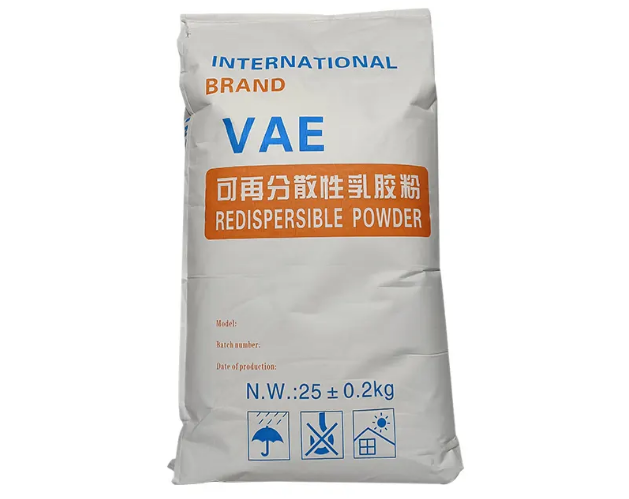What Are Redispersible Polymer Powders (RDP)?
Redispersible polymer powders are white, free-flowing powders produced by spray-drying polymer dispersions. When these polymer powders are mixed with water, they can re-disperse and form polymer dispersions with the same properties as the original dispersion.
Redispersible polymer powders are added to mortar to increase the flexibility and cohesiveness of mortar. This forms a continuous polymer film that helps improve water retention, enhance the bond strength of mortar, and improve the workability of dry mix mortar.
Production Process of Redispersible Polymer Powder (RDP)
Redispersible polymer powder is produced from latex emulsions through a process of spray-drying macromolecular dispersions under specific conditions. To prevent the latex particles from bonding together during production, polyvinyl alcohol is added. These polymer powders are typically based on acrylic polymers, polyvinyl acetate, copolymers of vinyl acetate with vinyl versatate, or with ethylene.
RDPs consist of polymer resin, which is the main component of dispersion particles and plays a crucial role in the functionality of redispersible powders. Acting as a modified resin and polymer resin, polymer powders serve as additives in various applications.
Properties of Redispersible Polymer Powders
When water is added to dry mix mortar, the polymer powder forms a dispersion and creates a film upon drying. This film enhances elasticity and adhesion. Redispersible polymer powders are categorized based on their elasticity and adhesion properties, including highly elastic with low adhesion, rigid with high adhesion, and medium elastic with standard adhesion. Some powders have water added to impart hydrophobic characteristics to the material.
Vinyl Acetate-Ethylene Polymers (VAE): These powders combine the flexibility of ethylene with the adhesion of vinyl acetate, offering numerous economic and ecological benefits without compromising performance. They provide excellent cohesion, flexibility, low-temperature film formation, and variable glass transition temperature. Additionally, they exhibit strong adhesion to various substrates such as plastics and wood.
Vinyl Chloride Copolymers and Terpolymers: These polymer powders demonstrate high water resistance, hydrophobicity, and tensile adhesion. They are particularly effective in applications where water resistance is crucial, offering superior performance in challenging environments.
Related links:
Hydroxypropyl Methyl Cellulose VS Methyl Cellulose
What is Polypropylene Carbonate Used For?
Terpolymers based on VEOVA and VAcE: These polymer powders have remarkably low transition temperatures. They offer advantages such as good workability, non-slump behavior, strong tensile adhesion strength, excellent crack-bridging properties, and minimal stickiness.
Applications of Redispersible Polymer Powders
Redispersible Polymer powder is mainly used in all kinds of dry-mix mortar, such as wall putty powder, ceramic tile adhesive, ceramic tile jointing agent, dry powder interface agent, exterior insulation mortar, self-leveling mortar, mending mortar, decorative mortar, waterproof mortar, etc.
Redispersible polymer powders find extensive applications across various industries, including:
1. Construction adhesives
2. Tile adhesives
3. Joint mortars
4. External wall putty
5. Building binders
6. Filling compositions, such as concrete repair joints, crack isolation membranes, and waterproofing membrane applications.
Interested in RDP Powder Products? Contact SLEO
SLEO offers a range of RDP polymer products designed to enhance abrasion resistance, flexural strength, gas migration, and workability properties of mixed mortar. These polymer powders dissolve easily in water and form stable emulsions.
Send us a message online to discover more about the available specifications, grades, packaging options, and applications of our polymer powders. Our team will assist you in finding an RDP powder product that meets your specific requirements.


